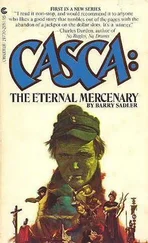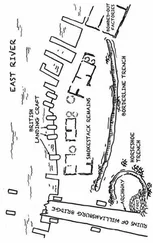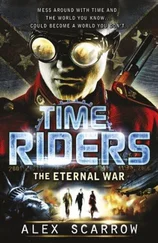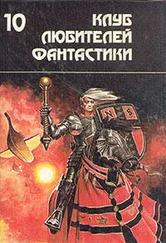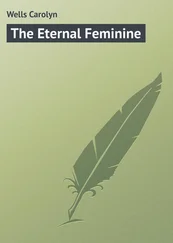“Huh. But my grandfather being a terrorist still doesn’t ring any bell.”
“Sixty years from now the grandkids of Islamic suicide bombers might say the same thing,” Keiko argued, cheeks stuffed with pasta, before noisily chugging down some water. It was definitely not very feminine. My sister is fairly pretty, if you’d take her brother’s word for it, but she sure didn’t put much effort into personal grooming or matters of etiquette.
“Did our grandfather leave a will or any last words?”
“Apparently not.”
“There’s not a trace of his life at all?”
“That’s why we need to investigate it.”
“So what is it exactly that I’m supposed to do?”
“I want you to look up some of his war buddies. I’m super busy right now and just can’t get around to it myself. That’s why I’ve tasked you with that research. I’ll pay you an advance, so please do it,” she rattled off, retrieving an envelope from her handbag and handing it to me. “You’re not exactly busy, right? You’ll get somewhere with phone calls and faxes. If you can manage to find any of his comrades, I’ll go to interview them in person.”
I accepted the envelope, feeling slightly fed up already. “By the way, how old would he be if he were still alive?”
Keiko pulled out a notebook and flipped through the pages. “He was born in the eighth year of the Taisho Era, or 1919, so he’d be eighty-five.”
“It might be tough to find any war buddies. In just a few years everyone who saw combat will have died out.”
“Hmm,” Keiko said. “We might be too late.”
___
Even though I accepted the job, I didn’t lift a finger for over a week.
It was only after countless pestering calls from my sister that I finally, reluctantly, got off my butt and got to work. Since I’d taken the advance money I couldn’t get away with not working at all.
I learned of my grandfather’s military service record after placing a call to the Ministry of Health, Labor and Welfare.
“Kyuzo Miyabe; born in Tokyo in 1919; enlisted in the Imperial Navy in 1934; killed in action off the southwestern islands in 1945.”
That was my grandfather’s entire life in a sentence. Of course, if one wanted, there were plenty of details that could be filled in. When he entered the Navy, he first became an ordnanceman, then underwent flight training and became a pilot; in 1937 fought in the Second Sino-Japanese War; in 1941 was assigned to an aircraft carrier squadron and participated in the attack on Pearl Harbor; fought numerous air battles in the southern Pacific; returned to the interior in 1945; and died as a kamikaze pilot just a few days before the war ended.
He gave the best years of his life, the eleven years from age fifteen to twenty-six, to the military, spending the last eight in continuous battle as a pilot. And at long last he was forced to die a kamikaze. The timing was most unfortunate. Had the war ended just a few days sooner, he would have survived.
“You were born in a terrible era, Kyuzo-san,” I muttered without thinking.
Regarding his private life, he married my grandmother in 1941. My mother was born in 1942. They were married for just four years, most of which my grandfather spent on the front. It’s impossible to tell how long he was at home even when he returned to the interior. Perhaps Grandma never told Grandpa much about her first husband not because she was hiding anything in particular, but because there was nothing much to say.
Laying out his military background didn’t reveal anything of my grandfather’s humanity. In order to learn what kind of person he was, I’d need to get in touch with someone who remembered him. I was sure most of his comrades from the military had already passed away as well.
Guess we’re a bit too late, I thought, echoing Keiko’s words. But just as truly, now might be the last chance to learn anything.
___
The Ministry of Health, Labor and Welfare told me about the Suikou-kai association of former Navy officers. I called the association, and they told me the names of various veterans’ organizations. There were ones for comrades who had joined the marines division in the same year or who had served in the same squadrons or on the same aircraft carrier. However, as all the members were elderly, many of the organizations had disbanded in recent years. People who had experienced the war were exiting history’s stage even as I worked.
I wondered how many members among the organizations had known my grandfather and how well they’d remember events that had taken place sixty years ago. If I were to be asked about any of my current friends sixty years in the future, what memories would I be able to call up?
But thinking such thoughts wouldn’t get me started, so I sent letters at random to several veterans’ organizations asking if there was anyone who knew about my grandfather.
Two weeks later, I received a response from one group saying that they had someone who’d served as a pilot with my grandfather in Rabaul. The reply was from an executive member, and not only was it ornately handwritten, there were kanji characters I didn’t know. Unable to make out the whole letter, I brought it to my sister’s attention.
She was busy, so it wasn’t until late that night that we met up in a franchise restaurant. Even Keiko, who had majored in literature, had a hard time deciphering the ornate penmanship.
“Just a sixty-year difference between generations and their writing becomes illegible to us,” I said innocently as I watched her stare down the letter.
“We only see the postwar simplified forms of these characters and never learned their traditional forms. Some bear no resemblance at all. Like this one,” she said, pointing to a word. “Can you read this?”
I could not.
“I just happen to know it. It’s Combined Fleet.”
“So I guess this character means ‘combined’? It’s totally different. It has the ‘ear’ radical instead of the ‘advance’ radical, and the right half is completely different.”
Keiko laughed. “Plus it’s written in cursive which makes it that much harder to read.”
I sighed. “I feel like I’m dealing with a different race of people.”
“They’re Japanese, like us. Does Grandpa seem like a foreigner to you? Ah, I mean our living grandfather.”
“I don’t think of Grandpa as a member of a different race. But eighty-something-year-olds who aren’t family feel pretty darn foreign to me.”
Keiko placed the letter on the table and sipped her ice coffee. “They might think the same thing of us.”
Just the idea of dealing with such people made my heart sink a little.
Former Ensign Umeo Hasegawa’s house was in the suburbs of Saitama Prefecture. His former surname was Ishioka, so perhaps he was adopted after the war to continue the Hasegawa family line.
We got off at a station an hour outside Tokyo. The hub area had an urban appearance, but after walking a short while the scenery completely changed into endless rice paddies. The sun was directly overhead. With not a cloud in sight, its light was intense even though it was still early in July, and insects were making themselves heard like you wouldn’t believe. It got hot in the metropolis, but the piercing rays here held their own.
True summer.
“Hot, huh?” I said to my sister walking beside me.
“Oh, I’m enjoying myself.”
What kind of an answer is that?
I was starting to feel irritated. Keiko had said that she would conduct the interview herself, but at the last minute she’d insisted that I join her. “Just at first, please,” she’d practically begged, and without thinking carefully, I’d said yes. Walking down the sweltering countryside road, I was beginning to regret it big time.
Читать дальше
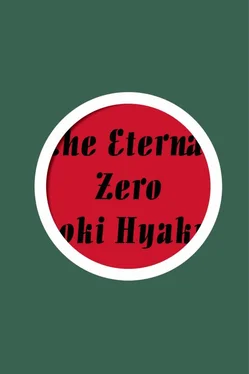
![Nick Cracknell - The Quiet Apocalypse [= Island Zero]](/books/28041/nick-cracknell-the-quiet-apocalypse-island-zero-thumb.webp)


